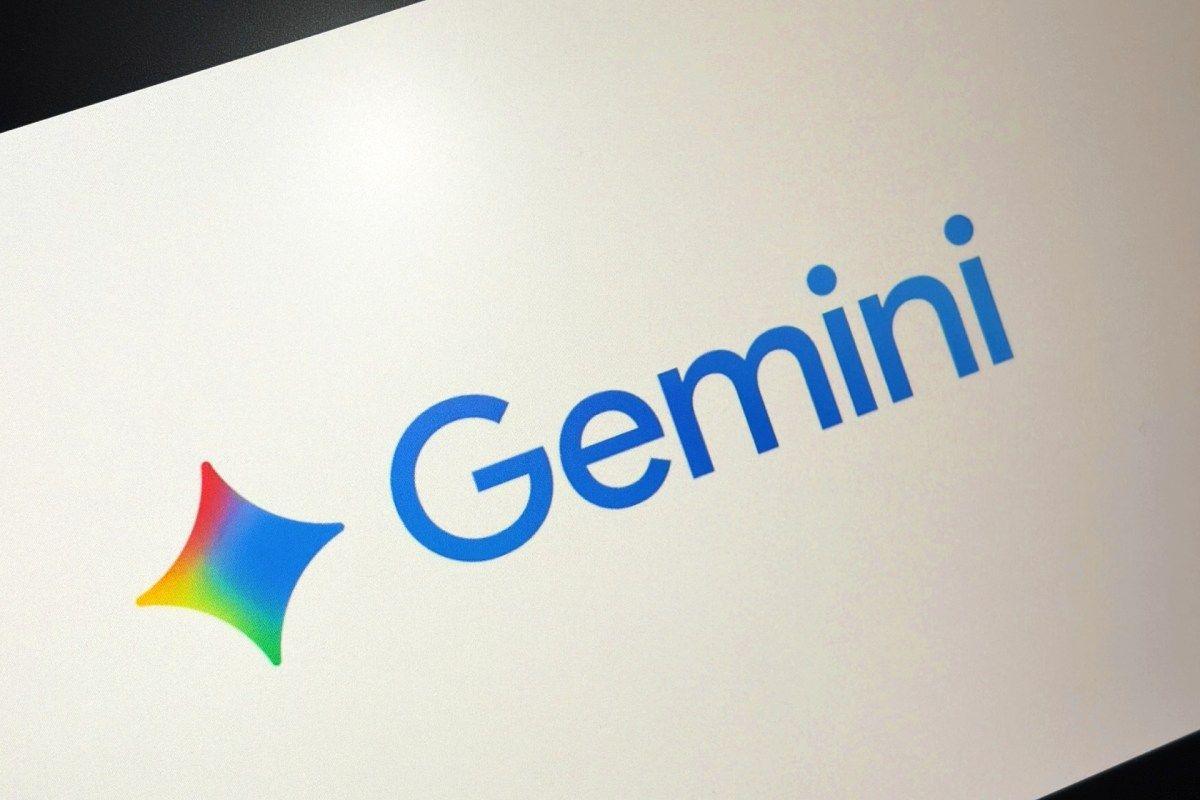UCLA Researchers Develop AI System to Transform Complex Health Records into Readable Narratives for Improved Emergency Care
3 Sources
3 Sources
[1]
AI system turns complex health records into readable narratives for better care
University of California - Los Angeles Health SciencesJul 2 2025 UCLA researchers have developed an AI system that turns fragmented electronic health records (EHR) normally in tables into readable narratives, allowing artificial intelligence to make sense of complex patient histories and use these narratives to perform clinical decision support with high accuracy. The Multimodal Embedding Model for EHR (MEME) transforms tabular health data into "pseudonotes" that mirror clinical documentation, allowing AI models designed for text to analyze patient information more effectively. Why it matters Electronic health records contain vast amounts of patient information that could help doctors make faster, more accurate decisions in emergency situations. However, most cutting-edge AI models work with text, while hospital data is stored in complex tables with numbers, codes, and categories. This mismatch has prevented healthcare systems from fully leveraging advanced AI capabilities. Emergency departments, where quick decisions can be critical, particularly need tools that can rapidly process comprehensive patient histories to predict outcomes and guide treatment decisions. What the study did Researchers created a novel approach that converts tabular electronic health record data into text-based "pseudonotes" using medical documentation shortcuts commonly used by healthcare providers. On other words, instead of treating the EHR as a collection of codes, pseudonotes creates a story composed of multiple narratives. The system breaks patient data into concept-specific blocks (medications, triage vitals, diagnostics, etc.), transforming each into text using simple templates, and then encodes each one separately using language models. It essentially emulates a form of medical reasoning. They then fed this text to advanced language models, treating different types of health information, like lab results, diagnoses, and medications, as separate but related data streams. The team tested their system against traditional machine learning methods, specialized healthcare AI models, and prompting-based approaches using real emergency department prediction tasks. What they found Across over 1.3 million emergency room visits from the Medical Information Mart for Intensive Care (MIMIC) database and UCLA datasets, MEME consistently outperformed existing approaches across multiple emergency department decision support tasks. The multimodal text approach, which processes different components of health records separately, achieved better results than trying to combine all information into a single representation. The system demonstrated superior performance compared to traditional machine learning techniques, EHR-specific foundation models like CLMBR and Clinical Longformer, and standard prompting methods. The approach also showed good portability across different hospital systems and coding standards. What's next The research team plans to test MEME's effectiveness in other clinical settings beyond emergency departments to validate its broader applicability. They also aim to address limitations observed in cross-site model generalizability, working to ensure the system performs consistently across different healthcare institutions. Future work will focus on extending the approach to accommodate new medical concepts and evolving healthcare data standards, potentially making advanced AI more accessible to healthcare systems. From the experts "This bridges a critical gap between the most powerful AI models available today and the complex reality of healthcare data," said Simon Lee, PhD student at UCLA Computational Medicine. "By converting hospital records into a format that advanced language models can understand, we're unlocking capabilities that were previously inaccessible to healthcare providers. The fact that this approach is more portable and adaptable than existing healthcare AI systems could make it particularly valuable for institutions working with different data standards." University of California - Los Angeles Health Sciences Journal reference: Lee, S. A., et al. (2025). Clinical decision support using pseudo-notes from multiple streams of EHR data. npj Digital Medicine. doi.org/10.1038/s41746-025-01777-x.
[2]
AI model converts hospital records into text for better emergency care decisions
UCLA researchers have developed an AI system that turns fragmented electronic health records (EHR) normally in tables into readable narratives, allowing artificial intelligence to make sense of complex patient histories and use these narratives to perform clinical decision support with high accuracy. The Multimodal Embedding Model for EHR (MEME) transforms tabular health data into "pseudonotes" that mirror clinical documentation, allowing AI models designed for text to analyze patient information more effectively. The work is published in the journal npj Digital Medicine. Electronic health records contain vast amounts of patient information that could help doctors make faster, more accurate decisions in emergency situations. However, most cutting-edge AI models work with text, while hospital data is stored in complex tables with numbers, codes, and categories. This mismatch has prevented health care systems from fully leveraging advanced AI capabilities. Emergency departments, where quick decisions can be critical, particularly need tools that can rapidly process comprehensive patient histories to predict outcomes and guide treatment decisions. Researchers created a novel approach that converts tabular electronic health record data into text-based "pseudonotes" using medical documentation shortcuts commonly used by health care providers. In other words, instead of treating the EHR as a collection of codes, the pseudonotes model creates a story composed of multiple narratives. The system breaks patient data into concept-specific blocks (medications, triage vitals, diagnostics, etc.), transforming each into text using simple templates, and then encodes each one separately using language models. It essentially emulates a form of medical reasoning. The team then fed this text to advanced language models, treating different types of health information -- like lab results, diagnoses, and medications -- as separate but related data streams. The team tested their system against traditional machine learning methods, specialized health care AI models, and prompting-based approaches using real emergency department prediction tasks. Across over 1.3 million emergency room visits from the Medical Information Mart for Intensive Care (MIMIC) database and UCLA datasets, MEME consistently outperformed existing approaches across multiple emergency department decision support tasks. The multimodal text approach, which processes different components of health records separately, achieved better results than trying to combine all information into a single representation. The system demonstrated superior performance to traditional machine learning techniques, EHR-specific foundation models like CLMBR and Clinical Longformer, and standard prompting methods. The approach also showed good portability across different hospital systems and coding standards. The research team plans to test MEME's effectiveness in other clinical settings beyond emergency departments to validate its broader applicability. They also aim to address limitations observed in cross-site model generalizability, working to ensure the system performs consistently across different health care institutions. Future work will focus on extending the approach to accommodate new medical concepts and evolving health care data standards, potentially making advanced AI more accessible to health care systems. "This bridges a critical gap between the most powerful AI models available today and the complex reality of health care data," said Simon Lee, Ph.D. student at UCLA Computational Medicine. "By converting hospital records into a format that advanced language models can understand, we're unlocking capabilities that were previously inaccessible to health care providers. The fact that this approach is more portable and adaptable than existing health care AI systems could make it particularly valuable for institutions working with different data standards."
[3]
AI Model Converts Hospital Records Into Text for Better Emergency Care Decisions | Newswise
Newswise -- UCLA researchers have developed an AI system that turns fragmented electronic health records (EHR) normally in tables into readable narratives, allowing artificial intelligence to make sense of complex patient histories and use these narratives to perform clinical decision support with high accuracy. The Multimodal Embedding Model for EHR (MEME) transforms tabular health data into "pseudonotes" that mirror clinical documentation, allowing AI models designed for text to analyze patient information more effectively. Why it matters Electronic health records contain vast amounts of patient information that could help doctors make faster, more accurate decisions in emergency situations. However, most cutting-edge AI models work with text, while hospital data is stored in complex tables with numbers, codes, and categories. This mismatch has prevented healthcare systems from fully leveraging advanced AI capabilities. Emergency departments, where quick decisions can be critical, particularly need tools that can rapidly process comprehensive patient histories to predict outcomes and guide treatment decisions. What the study did Researchers created a novel approach that converts tabular electronic health record data into text-based "pseudonotes" using medical documentation shortcuts commonly used by healthcare providers. On other words, instead of treating the EHR as a collection of codes, pseudonotes creates a story composed of multiple narratives. The system breaks patient data into concept-specific blocks (medications, triage vitals, diagnostics, etc.), transforming each into text using simple templates, and then encodes each one separately using language models. It essentially emulates a form of medical reasoning. They then fed this text to advanced language models, treating different types of health information, like lab results, diagnoses, and medications, as separate but related data streams. The team tested their system against traditional machine learning methods, specialized healthcare AI models, and prompting-based approaches using real emergency department prediction tasks. What they found Across over 1.3 million emergency room visits from the Medical Information Mart for Intensive Care (MIMIC) database and UCLA datasets, MEME consistently outperformed existing approaches across multiple emergency department decision support tasks. The multimodal text approach, which processes different components of health records separately, achieved better results than trying to combine all information into a single representation. The system demonstrated superior performance compared to traditional machine learning techniques, EHR-specific foundation models like CLMBR and Clinical Longformer, and standard prompting methods. The approach also showed good portability across different hospital systems and coding standards. What's next The research team plans to test MEME's effectiveness in other clinical settings beyond emergency departments to validate its broader applicability. They also aim to address limitations observed in cross-site model generalizability, working to ensure the system performs consistently across different healthcare institutions. Future work will focus on extending the approach to accommodate new medical concepts and evolving healthcare data standards, potentially making advanced AI more accessible to healthcare systems. From the experts "This bridges a critical gap between the most powerful AI models available today and the complex reality of healthcare data," said Simon Lee, PhD student at UCLA Computational Medicine. "By converting hospital records into a format that advanced language models can understand, we're unlocking capabilities that were previously inaccessible to healthcare providers. The fact that this approach is more portable and adaptable than existing healthcare AI systems could make it particularly valuable for institutions working with different data standards." About the study Article: Clinical decision support using pseudo-notes from multiple streams of EHR data; npj Digital Medicine DOI: 10.1038/s41746-025-01777-x About the Research Team Simon A. Lee (Department of Computational Medicine, UCLA), Sujay Jain (Department of Electrical and Computer Engineering, UCLA), Alex Chen (Department of Computational Medicine, UCLA), Kyoka Ono (Department of Statistics and Data Science, UCLA; Department of Natural Sciences, International Christian University, Mitaka, Tokyo, Japan), Akos Rudas (Department of Computational Medicine, UCLA), Jennifer Fang (LA Health Services, Enterprise Clinical Informatics; Harbor-UCLA Medical Center; UCLA Department of Emergency Medicine), and Jeffrey N. Chiang (Department of Computational Medicine, UCLA; Department of Neurosurgery, UCLA).
Share
Share
Copy Link
UCLA researchers have created an AI system called MEME that converts complex electronic health records into readable narratives, enhancing clinical decision support in emergency care settings.
Bridging the Gap: AI Transforms Complex Health Records into Readable Narratives
Researchers at the University of California, Los Angeles (UCLA) have developed a groundbreaking artificial intelligence system that could revolutionize emergency care decision-making. The Multimodal Embedding Model for EHR (MEME) transforms complex, tabular electronic health records (EHR) into readable narratives, enabling AI to better understand and analyze patient histories
1
.The Challenge of Electronic Health Records
Electronic health records contain vast amounts of patient information that could potentially assist doctors in making faster, more accurate decisions, especially in critical emergency situations. However, a significant challenge has persisted: while cutting-edge AI models are designed to work with text, hospital data is typically stored in complex tables with numbers, codes, and categories
2
.This mismatch has hindered healthcare systems from fully leveraging advanced AI capabilities, particularly in emergency departments where rapid processing of comprehensive patient histories is crucial for predicting outcomes and guiding treatment decisions.
MEME: A Novel Approach to Health Data Analysis

Source: Medical Xpress
The MEME system addresses this challenge by converting tabular EHR data into text-based "pseudonotes" that mirror clinical documentation. This innovative approach allows AI models designed for text analysis to effectively process patient information
3
.The system operates by breaking down patient data into concept-specific blocks, such as medications, triage vitals, and diagnostics. It then transforms each block into text using simple templates and encodes them separately using language models. This process essentially emulates a form of medical reasoning, creating a story composed of multiple narratives instead of treating the EHR as a mere collection of codes.
Related Stories
Superior Performance and Broader Implications
In extensive testing across over 1.3 million emergency room visits from the Medical Information Mart for Intensive Care (MIMIC) database and UCLA datasets, MEME consistently outperformed existing approaches in multiple emergency department decision support tasks
1
.The multimodal text approach, which processes different components of health records separately, achieved better results than attempts to combine all information into a single representation. MEME demonstrated superior performance compared to traditional machine learning techniques, EHR-specific foundation models like CLMBR and Clinical Longformer, and standard prompting methods
2
.Importantly, the approach also showed good portability across different hospital systems and coding standards, suggesting potential for widespread adoption.
Future Directions and Expert Insights

Source: Newswise
The research team plans to expand their testing of MEME's effectiveness beyond emergency departments to validate its broader applicability in various clinical settings. They aim to address limitations in cross-site model generalizability and ensure consistent performance across different healthcare institutions
3
.Simon Lee, a Ph.D. student at UCLA Computational Medicine, emphasized the significance of this development: "This bridges a critical gap between the most powerful AI models available today and the complex reality of healthcare data. By converting hospital records into a format that advanced language models can understand, we're unlocking capabilities that were previously inaccessible to healthcare providers"
2
.
Source: News-Medical
As the team continues to refine and expand MEME's capabilities, this innovative approach has the potential to make advanced AI more accessible to healthcare systems, potentially transforming the landscape of clinical decision support and emergency care.
References
Summarized by
Navi
Related Stories
Revolutionary AI System InfEHR Transforms Medical Diagnosis Through Advanced Pattern Recognition
16 Oct 2025•Health

AI Poised to Revolutionize Hospital Quality Reporting, UC San Diego Study Finds
22 Oct 2024•Health

AI Outperforms Nurses in Predicting Hospital Admissions, Promising to Reduce ER Overcrowding
12 Aug 2025•Health

Recent Highlights
1
French Police Raid X Office as Grok Investigation Expands to Include Holocaust Denial Claims
Policy and Regulation

2
OpenAI launches Codex MacOS app with GPT-5.3 model to challenge Claude Code dominance
Technology

3
Anthropic releases Claude Opus 4.6 as AI model advances rattle software stocks and cybersecurity
Technology





